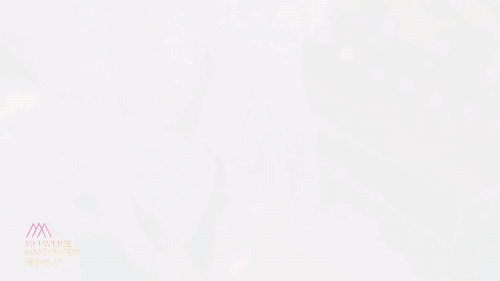Halszka Masash is one of the first virtual residencies at Metaverse Makeovers, an innovative augmented-reality nail art company based in Shanghai, Melbourne, Hong Kong, and online. They invite artists to create cross-cultural, collaborative, future-forward MM Nails by hosting "In-App" and "On-Nail" artist residencies.
China Residencies: How did you hear about the Metaverses Makeovers residency?
Halszka Masash: Through a friend, but I had also worked previously with Thea [Baumann] and Kati [Elizabeth], on other projects, so they were already aware of what I was able to produce.
CR: Had you been to (or thought about) going to China before?
HM: No I have never been to China previously, however it has always been on top of my list as I have always been enchanted by ancient Chinese culture.
CR: How did you become interested in working with nail art?
HM: Fashion has always been a strong element in my work and therefore the extension into beauty was very natural. I have always collected photographs of particularly over the top kawaii nail sets with chunky 3d’s.
CR: How familiar were you with Chinese culture, or did you speak any Chinese before starting the residency?
HM: I have never been to China, I do not speak Chinese, although I remember listening to my mother learning Chinese back in the early 2000’s. In terms of Chinese culture, I have a passion for Chinese Kung Fu films, everything to do with Chinese martial arts and the aesthetics of Chinese Opera. I collect pictures of ancient Chinese clothing and my favourite animal also comes from China, the red panda.
CR: What inspired you for your Bo-Peep designs?
HM: Bo peep designs were inspired by the year of The Sheep. We wanted to create a theme that involved the great attributes of the year of the sheep, money and gorgeous little lambs. We were well aware of the fact that the Chinese audience may not know of the Bo Peep fairytale, however we wanted to create a celebration and fusion of cultures.

CR: What was it like to be on a virtual residency and work remotely?
HM: Working on a virtual residency, remotely seemed well fitted to my role at Metaverse Makeovers, after all we love technology. I'm a total geek at heart so I prefer online communication. Also being a very visual person, I think one can get a lot from being able to have visual records of conversations, images, mood boards and so forth. Future beauty tech is a world of files, folders, links and blogs, although at times I wish I could have witnessed the process of Shanghai based nail manufacturing.
CR: Did you collaborate with other artists at the residency?
HM: I most often collaborate with Kati Elizabeth, who is my product manager at Metaverse Makeovers.
CR: What’s it like to be an artist for a tech company?
HM: It is hard work, there are strict deadlines, specific budgets, target sales and technological restrictions which all make the artistic process completely different to the process most artists are used to working in. As an artist in a tech company one must do as much learning in a fast speed environment, as they do producing, to stay current with the evolving technology.

CR: For you, how do art and technology intertwine?
HM: For me art and technology have always intertwined, as I have a particular interest in virtual reality, augmented reality, in creating fantasy worlds which technology so successfully may assist in creating. For me, it's not about technology itself, it’s about what technology can help me imagine, fantasise and re-create. I see technology as a profound tool of communication in which I can create myself as who I want to be, not as what the burdens of reality impose on me.
CR: Did you notice any cultural difference in how technology and beauty are approached in China and Australia?
HM: Yes, in particularly in the usage of beauty apps. Cute, beauty apps, which give you rosy cheeks, big eyes and eyelashes are less popular in Australia. However this may be due to the fact that many Australian women just don't know about these Chinese apps, as they are often offered in selected languages. I also feel that the Australian tech market is more stereotypically masculine if not androgynous, so us girls who like more traditionally feminine aesthetics are not used to having the choice to have pretty tech things in general.
CR: What was the most difficult challenge you had to face during your residency?
HM: To make designs that “pop”, literally as AR designs on difficult surfaces. To work in a completely uncharted tech area, in a small team, of wonderful but overworked people. To stay online at ALL times of the day.

Scanning Halszka's nail designs with the Metaverse Makeovers app.
CR: Do you think you will continue creating nail art in the future?
HM: Yes, I think working at Metaverse Makeovers has further ignited my interest in beauty accessories in general.
CR: Are there any other projects you started or wished you had more time to do at the residency?
HM: Yes, there are a million things I wish I would have had the time to work on as part of my residency. These are all industry secrets however, but my dream would be to stay with Metaverse Makeovers and work towards creating a tech fantasy future by women for women.
This interview was conducted over email by Sophia Wu & Kira Simon-Kennedy for China Residencies.